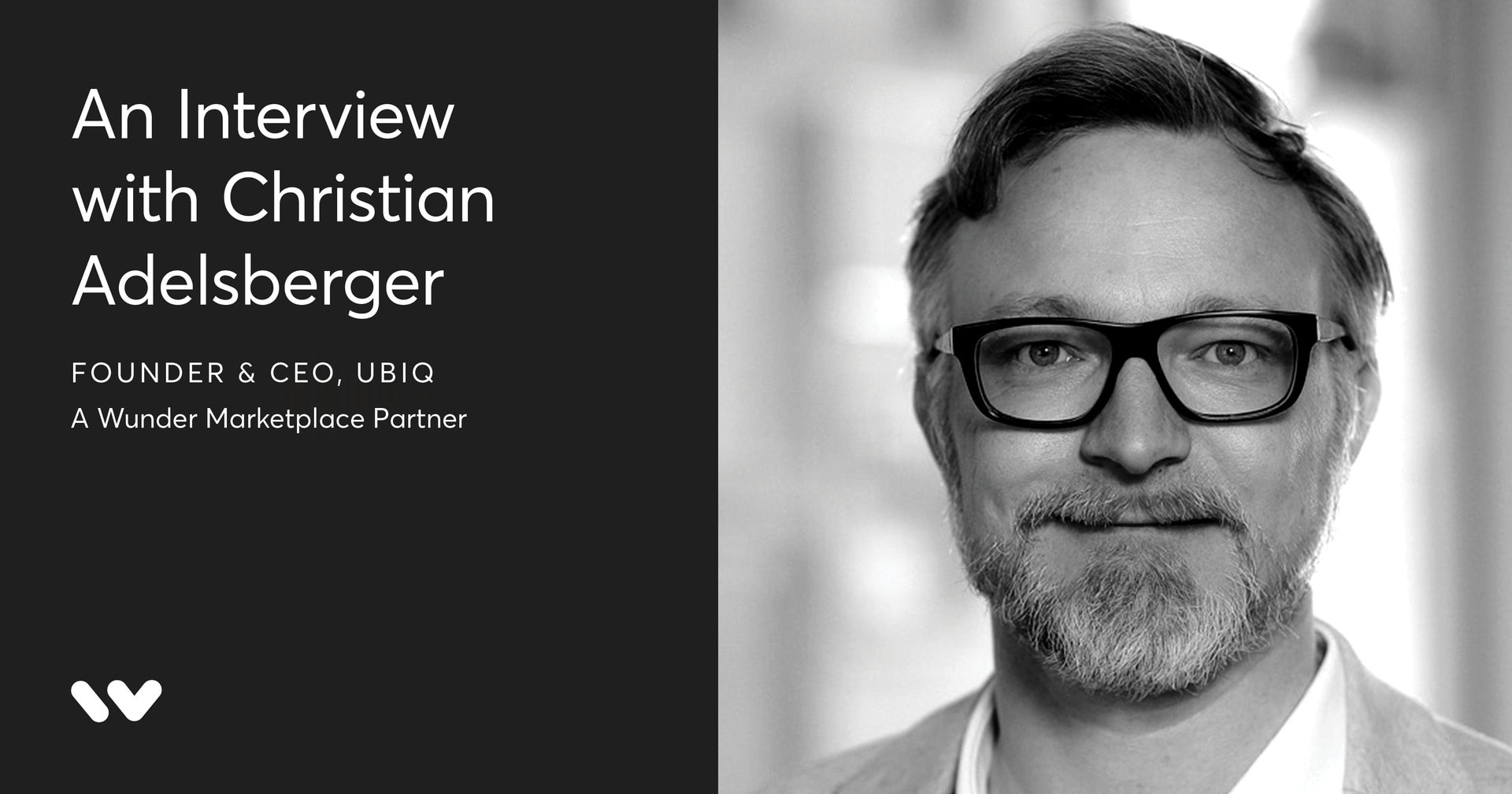Today we hear from Christian Adelsberger, Founder and CEO of Ubiq, one of our Wunder Marketplace partners.
Learn more at https://www.wundermobility.com/marketplace/ubiq.
Joining the Wunder Marketplace is the Vienna-based Ubiq, a mobility tech provider focused on fleet utilization improvement. We sat down with Ubiq Founder & CEO, Christian Adelsberger to discuss what Ubiq is all about.
Hello Christian, it’s great to have Ubiq on the Wunder Marketplace, could you tell us a little about what Ubiq is?
Christian: Ubiq is a mobility tech provider, supporting future mobility companies to operate profitably and sustainably.
We started off working with car-sharing companies, specifically in Europe and the US, developing an algorithm that helps them to avoid fines and optimize the parking situation in cities. While doing this, we found that using the same algorithms and applying them to the actual fleet distribution across the city, we could help operators to better match vehicle supply with demand.
Since then we have grown our services to include not only demand intelligence but also predictive charging and dynamic pricing for a whole range of vehicle types. We have invested a lot into developing these algorithms and have since won a number of customers who have been able to profit from that.
Who would be a typical Ubiq customer?
Christian: A typical Ubiq customer is a shared mobility company. This could be carsharing, scooters, or e-Mopeds. It doesn’t really matter, provided it’s shared. We have targeted providers of the free-floating model but more and more we are getting interest from station-based models as we can also optimize the distribution of vehicles across stations.
The main value we provide is automating operations in terms of rebalancing and charging. All operators seeking to optimize these areas are a perfect fit for Ubiq.
What makes Ubiq special?
Christian: I believe what makes Ubiq special, first of all, is a deep algorithmic experience working with thousands of mobility data sources. We didn’t just start two years ago, we’ve been doing this for years. Albeit not focusing on fleet efficiency at the beginning. This means we have a huge asset base when it comes to data.
Secondly, what really differentiates us is our capability to execute in a seamless and scalable way. We have developed what we call StreetCrowd. StreetCrowd is a crowd-based model that helps our customers to exploit efficiency potentials out there. With StreetCrowd they can do this without the need to necessarily expand their own operations team. This means they can scale their operations without spending considerable sums of money.

Interesting. This crowdsourcing concept in mobility is quite well known in the scooter business in the form of ‘juicers’. Could you tell us a bit more about how StreetCrowd works?
Christian: StreetCrowd is a pool of StreetCrowd members who are contracted by us and are paid to carry out operational activities that help share mobility providers to improve their business.
We have two use-cases for this. The first is automated rebalancing (the moving of vehicles from low demand to high demand locations). It is different from normal fleet rebalancing in that it is steered by our platform automatically with StreetCrowd users executing on these opportunities. It is important to stress the benefit of autonomy here. StreetCrowd allows operators to have an operational ecosystem that is fully automated. Some operators use this in tandem with service teams, of course, but it is StreetCrowd that allows them to truly scale their operations.
The second use-case is predictive charging. This is, in principle, optimizing the way charging is done from a reactive mode when a vehicle is empty, to a proactive mode by forecasting when a vehicle will be low on battery and considering where there is charging infrastructure nearby.
Cool. So how far could this crowd concept go? Could you see StreetCrowd being used for other use-cases, say cleaning?
Christian: Theoretically yes, and we have actually already introduced a service like this following the coronavirus. However, the potential use-case that I see far more prominently is charging. Even for private users, charging is a hassle. No one wants to get up at 2 am to have to go out and move their car once the charging cycle is finished. You want your car to be charged when you need it, so there is room for the crowd there. From cleaning to maintenance, I think there is huge potential for crowd-driven mobility operations.
By joining the Wunder Marketplace, Ubiq joins a select group of companies offering B2B services for shared mobility. Why did you choose to become a Wunder Mobility partner?
Christian: First of all, Wunder Mobility is simply a great partner to work with. The company is well respected and really sits at the heart of the shared mobility ecosystem.
Aside from that, however, I believe the current growth and scale we have seen can be driven further by working with Wunder Mobility. It gives us a further reach into markets where it would be otherwise difficult to enter. And by combining our technologies, I think this offering could be very attractive to mobility companies.
What changes in mobility would you like to see in the next five years?
Christian: What I’d like to see is a far more intermodal approach towards mobility. All of the services out there are pretty much silos. If you use a scooter, you use a scooter app. If you want to use public transport you might even have to get a paper ticket. This needs to be interconnected and combined. In the end, I, as a user, want to get from A to B in either the fastest, the most convenient, or the least expensive way. With so many options now, it is all about bringing these together.
And kind of related to this, I see a huge opportunity in combining a strong public transport backbone with shared and micromobility to enable people, at the end of the day, to replace their own cars. This would lead us to a far more sustainable situation with more liveable cities.

